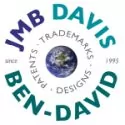- within Intellectual Property topic(s)
- within Corporate/Commercial Law and Technology topic(s)
So what do you think of when someone says to you "Imagine"?
For many, they will immediately think of the immortal song released by John Lennon in 1971. It says different things to different people. For example, imagining "all the people livin' for today" raises the age old existential question as to the purpose of our very existence. And so the song continues, and each line, when properly considered, gives rise to very serious questions; questions that we should be asking, even if we don't necessarily agree with the answers hidden in the lyrics.
I thought of this song, now 51 years old, after hearing that Elon Musk had recently been quoted as saying 'patents are for the weak'. Being naturally curious about what I viewed to be rather strange, I found that he did in fact make such a statement when talking to Jay Leno, as reported on the CNBC website. Musk was quoted as saying "I don't care about patents" and "Patents are for the weak". He was further quoted as contending that "They're used like landmines in warfare," and "They don't actually help advance things; they just stop others from following you."
This is nothing if not provocative. Since I started practicing in the mid-80's I have come across statements such as "I don't believe in patents but my investor said I have to come and see you", and "we don't register patents because our technology is so far ahead of others". But are patents really "for the weak?"
I agree with Musk with regard to his landmines analogy. They are used to stop followers, but then that is the whole basis of patents, namely, a transaction between society and inventors, wherein the inventors are incentivized to invent in exchange for limited monopoly rights aka a patent.
But does that make companies weak? Registering and owning patents? I could refer to the ownership by Musk's flagship company Tesla, of 3,304 patents (as per the 2000-2020 statistics shown on the Statista website). However, as they have relatively recently made so many available for open license it is possible that Musk had a change of heart and believes what he is now saying. Maybe he is even slightly embarrassed by his wealth of patents.
But then you think of other companies: IBM, Samsung, Canon, Qualcomm, Google, LG, Microsoft, Huawei and a vast number of other corporations, each of which owns tens of thousands of patents, and who if anything, are accelerating the rate at which they acquire them. Are these the weak to which Musk refers?
And in contrast to the above gargantuans, at the other end of the spectrum are thousands of small and medium size companies who invest significant sums of money in developing technology with which they improve their products, and register patents and other IP rights so as to prevent others from encroaching on their markets. If you look at these companies and their inability to function without being able to assert patent rights against companies such as the Fortune 500 and thousands of others then yes, you could definitely say that they are weak. They are indeed the underdogs, the so-called little guys that we like to see win.
I am left puzzled by Musk's statement about patents being for the weak and his contention that they don't advance things and just "stop others from following you". Really? Do they not advance things? Flip though the annals of medicine and technology and cross-reference it with patent records. Then see if you honestly come to the same conclusion.
Curiously enough, in addition to the release of Imagine 51 years ago, another event that took place 51 years ago was the birth of none other than Elon Musk. Mere coincidence? Probably.
But one line of the song that resonates very strongly includes the words "You may say I'm a dreamer". I'm not sure whether the form of apparent Utopia envisioned in John Lennon's song is everyone's dream – but I suspect that as he contends at the end, he was, in fact, "not the only one".
The content of this article is intended to provide a general guide to the subject matter. Specialist advice should be sought about your specific circumstances.


